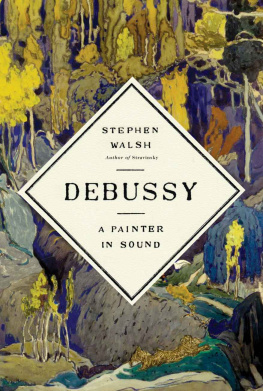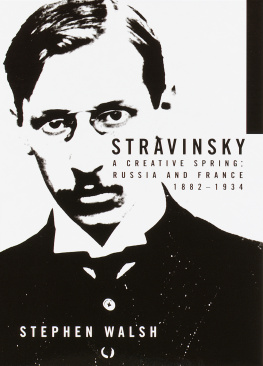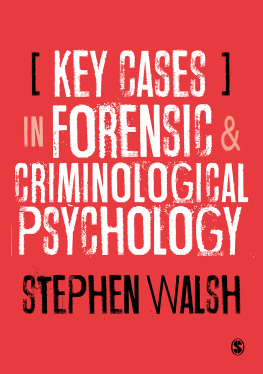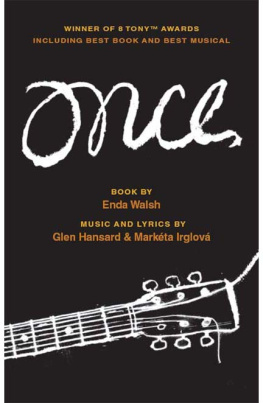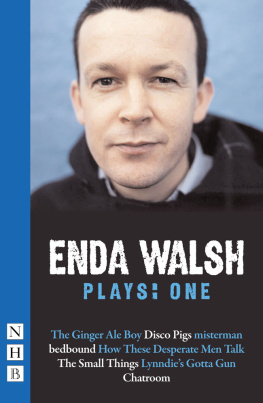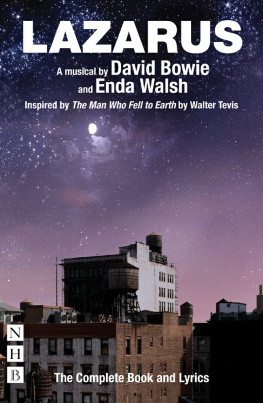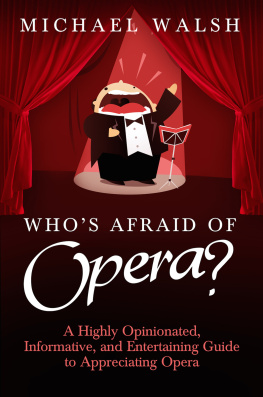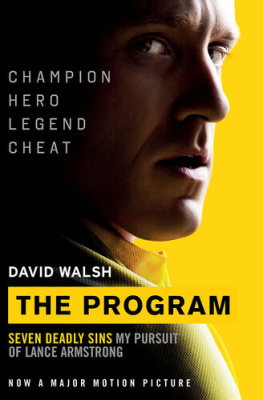Stephen Walsh - Musorgsky and his Circle: A Russian Musical Adventure
Here you can read online Stephen Walsh - Musorgsky and his Circle: A Russian Musical Adventure full text of the book (entire story) in english for free. Download pdf and epub, get meaning, cover and reviews about this ebook. genre: Non-fiction. Description of the work, (preface) as well as reviews are available. Best literature library LitArk.com created for fans of good reading and offers a wide selection of genres:
Romance novel
Science fiction
Adventure
Detective
Science
History
Home and family
Prose
Art
Politics
Computer
Non-fiction
Religion
Business
Children
Humor
Choose a favorite category and find really read worthwhile books. Enjoy immersion in the world of imagination, feel the emotions of the characters or learn something new for yourself, make an fascinating discovery.

- Book:Musorgsky and his Circle: A Russian Musical Adventure
- Author:
- Genre:
- Rating:5 / 5
- Favourites:Add to favourites
- Your mark:
- 100
- 1
- 2
- 3
- 4
- 5
Musorgsky and his Circle: A Russian Musical Adventure: summary, description and annotation
We offer to read an annotation, description, summary or preface (depends on what the author of the book "Musorgsky and his Circle: A Russian Musical Adventure" wrote himself). If you haven't found the necessary information about the book — write in the comments, we will try to find it.
Musorgsky and his Circle: A Russian Musical Adventure — read online for free the complete book (whole text) full work
Below is the text of the book, divided by pages. System saving the place of the last page read, allows you to conveniently read the book "Musorgsky and his Circle: A Russian Musical Adventure" online for free, without having to search again every time where you left off. Put a bookmark, and you can go to the page where you finished reading at any time.
Font size:
Interval:
Bookmark:

THIS IS A BORZOI BOOK
PUBLISHED BY ALFRED A. KNOPF
Copyright 2013 by Stephen Walsh
All rights reserved. Published in the United States by Alfred A. Knopf, a division of Random House, Inc., New York. Simultaneously published in Great Britain by Faber and Faber Ltd., London.
www.aaknopf.com
Knopf, Borzoi Books, and the colophon are registered trademarks of Random House, Inc.
Library of Congress Cataloging-in-Publication Data
Walsh, Stephen, [date]
Musorgsky and his circle : a Russian musical adventure /
by Stephen Walsh.
pages cm
ISBN 978-0-307-27244-7 (hardcover)
ISBN 978-0-385-35048-8 (eBook)
1. Mussorgsky, Modest Petrovich, 18391881. 2. Moguchaia kuchka
(Group of composers) 3. ComposersRussiaBiography. 4. Music
Russia19th centuryHistory and criticism. 5. MusicRussia20th
centuryHistory and criticism. 6. Nationalism in music. I. Title.
ML390.W175 2013
780.92dc23
[B] 2013004600
Jacket images: (center) Modest Musorgsky from The Granger Collection, NY; (corners, clockwise) Nikolai Rimsky-Korsakov, Alexander Borodin, Csar Cui, and Mily Balakirev from DeA Picture Library / The Granger Collection, NY
Jacket design by Peter Mendelsund
v3.1
For Anthony Powers
It is strange to remember those thoughts and to try to catch
The underground whispers of music beneath the years
HENRY REED
The story of nineteenth-century Russian nationalism is one of the most fascinating and colorful in music history, and the music the nationalists wrote is some of the most popular and original in the entire classical repertoire. Moreover, it connects directly with the social and political history of the period, because the composers were responding specifically to ideas about society and the relationship between society and art that were central to Russian thought in the century between the end of the Napoleonic Wars and the 1917 revolutions.
Yet despite this rich texture of significance, there are few essential books specifically on the subject. The only book in English on the kuchka as a whole is an enjoyable but essentially anecdotal account by the Russian historian Mikhail Zetlin which is stronger on atmosphere than ideas or music. There are standard, if old-fashioned, biographies of Borodin and Balakirev, and some excellent lives of Musorgsky, including David Browns Master Musicians volume, a short study by Caryl Emerson, and two at one time indispensable but now antique books by Gerald Abraham and Michel Calvocoressi. The academic literature is strong but specialized, much preoccupied with source materials, textual variants, issues of style, the correcting of supposed historical misunderstandings, and general questions such as realism and ethnography. To the best of my knowledge, no musically literate general study that is both scholarly and readable exists.
My book is an attempt to meet those rather stiff criteria. The case for such a study is certainly unanswerable. When one considers the vast literature on Wagner and Verdi, the poverty of what is available on the kuchka is shameful. One doesnt have to claim that any of the Five are in the same league as those two masters to argue that their work and ideas merit closer attention than they have so far received. Leaving aside the indisputable fact that Musorgskys Boris Godunov is among the greatest and most original of all nineteenth-century operas, that the work of Borodin and Rimsky-Korsakov includes music adored by people who could not name its composer, and that Musorgskys songs are as remarkable in their way as any in the German tradition, the intellectual and aesthetic context of these composers lives and work is alone well worth studying.
Their existence as an authentic groupmeeting several times a week, discussing one anothers work in progress, arguing about the goals of artcoincided roughly with the 1860s, which were a time of intellectual ferment following the emancipation of the serfs in 1861. Genuine creative collectives of this type are rare in music, probably because music doesnt usually deal with discussable ideas. For the kuchka it was crucial that their mentor was a nonmusician, the art historian Vladimir Stasov, a follower of the literary critic Vissarion Belinsky, who had argued that it was the task of art to reflect the realities of social and political life and the task of the critic to interpret art in that spirit. Stasov, who had known Glinkathe father figure of Russian musicconcocted his own set of values as to how such ideas might be adapted to a specifically nationalist music, and he did his best to impose them on his musical circle, with the help of the composer Mily Balakirev, the strongest personality in the group.
The groups amateurism is often held against it, and its true that their failure to produce regular, completed scores was at least partly due to their lack of the discipline and technical know-how that come from proper study. The fact that they mostly had other jobs obviously didnt help. Borodin, a musical genius, was also a vocational research chemist. Musorgsky was the younger son of landowners impoverished by the Emancipation, who was forced by sheer necessity into civil-service drudgery. Only Rimsky-Korsakov, who started out as a naval cadet, managed to square the circle by accepting a professorship in the Conservatoire in 1871. As a result he turned himself into a productive and disciplined musical worker who passed on his reformed work ethic to pupils like Glazunov and (especially) Stravinsky.
Font size:
Interval:
Bookmark:
Similar books «Musorgsky and his Circle: A Russian Musical Adventure»
Look at similar books to Musorgsky and his Circle: A Russian Musical Adventure. We have selected literature similar in name and meaning in the hope of providing readers with more options to find new, interesting, not yet read works.
Discussion, reviews of the book Musorgsky and his Circle: A Russian Musical Adventure and just readers' own opinions. Leave your comments, write what you think about the work, its meaning or the main characters. Specify what exactly you liked and what you didn't like, and why you think so.

